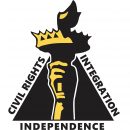- A
- A
- A

CDR Joins Disability Groups in Open letter to all New York City Candidates: Make Your Campaigns Accessible
CDR joins Bronx Independent Living Center – Brooklyn Center for the Independence of the Disabled – Center for the Independence of the Disabled New York – #CripTheVote – Disability Pride NYC – Disability Rights New York – Disabled In Action – Downstate New York ADAPT – Greater New York Council of the Blind – Harlem Independent Living Center – Independence Care System, Inc. – Staten Island Center for Independent Living – United Spinal Association-NYC Chapter, in an open letter calling on all New York City Candidates to make their campaigns accessible.
Click here for a large print version
April 28, 2021
Dear candidates for elected office in New York City:
We call on you to fully include our community in live or virtual town hall meetings, other campaign events and website and other online content, which has not been a consistent practice so far during the 2021 campaign.
We also write you to pledge to make your tenure in office fully inclusive, from your hiring practices, to how you communicate with the public, to your policies.
This is so basic. Federal and local laws[1] require reasonable accommodations for people with disabilities, including allowing full access to events, forums and meetings. But those laws often are ignored, and we end up shut out of the electoral process.
Beyond that, accessibility often has been an afterthought, if it is even thought of at all, for city leaders and policy-makers. People with disabilities make up as much as a quarter of the city’s population, and often have been excluded from the electoral process and government. That must change, and we expect you to make that commitment now and when you take office.
During your campaigns, we urge you to take these basic steps, among others, to make this election accessible to all:
- Agree to participate only in events that are fully accessible, including:
- Appearing only in venues with no physical barriers that prevent persons with mobility disabilities from full access to the event
- Using assistive listening technology, including loop technology if available
- Ensuring that all material displayed or distributed before, during or after the event are fully accessible, including using large-print versions of pamphlets and other campaign material.
These basic standards should be followed by all event or town hall organizers, even if not affiliated with your campaign, and you should make their adoption a condition of your participation.
- Produce material that is fully accessible, whether printed or distributed electronically.
- Develop and endorse campaign hiring policies specifically intended to include people with disabilities, including appointing an accessibility officer.
- Ensure that your offices are fully accessible to people with disabilities.
- Endorse initiatives that will widen access to city services and civic life for all. We will be following up with a disability platform.
Separately, we are attaching a checklist (see attachment) that you and your campaign can use to ensure full accessibility. We also recommend referring to the National Council on Independent Living’s Guide for Campaign Staff (see https://ncil.org/campaign-guide/). Our groups also are available to consult with you about how to improve accessibility (see below); the Mayor’s Office for People with Disabilities (MOPD) also has useful information at its website.
There is no one “disabled” neighborhood, so these basic accommodations are essential across the city and, of course, across the internet. It’s time all candidates for office make their campaigns and this election as accessible as possible. We look forward to working with you over the coming weeks and years.
Yours truly,
Christina Curry
Executive Director, Harlem Independent Living Center
Brett Eisenberg
Executive Director, Bronx Independent Living Services
Joseph G. Rappaport
Executive Director, Brooklyn Center for Independence of the Disabled
Jean Ryan
President, Disabled In Action
Susan Dooha
Executive Director, Center for Independence of the Disabled NY (CIDNY)
Bruce Darling
President/CEO, Center for Disability Rights
Gregg D. Beratan
Co-Organizer, #CripTheVote
Julia Yepez-Macbeth
Liaison, Disability Pride NYC (DPNYC)
Marc Fliedner
Director, PAIR and PAIMI Programs, Disability Rights New York
Terence B. Page
President, Greater New York Council of the Blind (GNYCB.ORG)
Regina M. Estela
President, Independence Care System, Inc
Michelle Sabatino
Executive Director, Staten Island Center for Independent Living
Jose Hernandez
President, United Spinal Association NYC Chapter
Should you require guidance on how best to provide reasonable accommodations, please feel free to reach out to the agencies listed below.
Harlem Independent Living Center
Christina Curry, M.A., MPA
Executive Director
Harlem Independent Living Center
Bronx Independent Living Services
Brett L. Eisenberg
Executive Director
Telephone: 718-515-2800 ext. 116
Brooklyn Center for Independence of the Disabled (BCID)
Joseph G. Rappaport Executive Director
646-284-1078
Center for Disability Rights
Gregg Beratan
610-247-4188
Center for Independence of the Disabled New York
Jeff Peters
929-507-2901
Disability Rights New York
Marc Fliedner
Director, PAIR and PAIMI Programs
Downstate New York ADAPT
Voting Engagement Working Group
Kathleen Collins
917-576-0225
Greater New York Council of the Blind (GNYCB.ORG)
Terence B. Page
President
917-664-3256
[1] Reasonable accommodations for people with disabilities, including appropriate auxiliary aids and services, are required by the Americans with Disabilities Act, 42 U.S.C. § 12131 et seq. and 42 U.S.C. § 12181 et seq., and the New York City Human Rights Law, N.Y.C. Admin. Code § 8-107(4)(a).